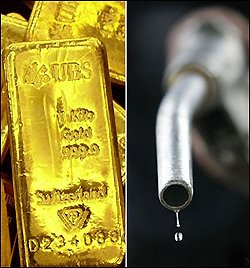How Long Will the Dollar Remain the Reserve Currency?
Decline & Fall, Reserve Currency, US Dollar
Liam Halligan, in the Telegraph, wonders aloud.
It is this “exorbitant privilege†– as French statesman Valéry Giscard d’Estaing once sourly observed – that has been the bedrock of America’s post-war hegemony. It is the status of the dollar, above all, that’s allowed Washington to get its way, putting the financial squeeze on recalcitrant countries via the IMF while funding foreign wars. To understand politics and power it pays to follow the money. And for the past 70 years, the dollar has ruled the roost.
This won’t change anytime soon. Something just took place, though, which illustrates that dollar reserve currency status won’t last forever and could be seriously diluted. Last week, seven decades on from Bretton Woods, the governments of Brazil, Russia, India and China led a conference in the Brazilian city of Fortaleza to mark the establishment of a new development bank that, whatever diplomatic niceties are put on it, is intent on competing with the IMF and World Bank.
It’s long been obvious the BRICs are coming. The total annual output of these four economies has spiralled in recent years, to an astonishing $29.6  trillion (£17.3 trillion) last year on a PPP-basis adjusted for living costs. That’s within spitting distance of the $34.2 trillion generated by the US and European Union combined.
America’s GDP, incidentally, was $16.8 trillion on World Bank numbers, and China’s was $16.2 trillion – within a whisker of knocking the US off its perch. The balance of global economic power is on a knife-edge. Tomorrow is almost today.
Read the whole thing.





